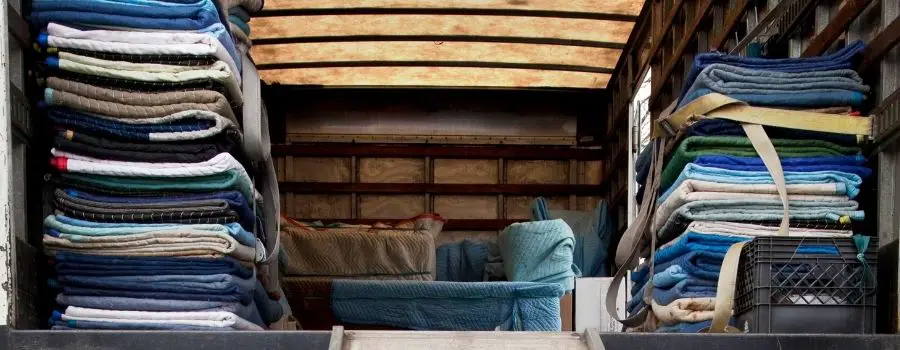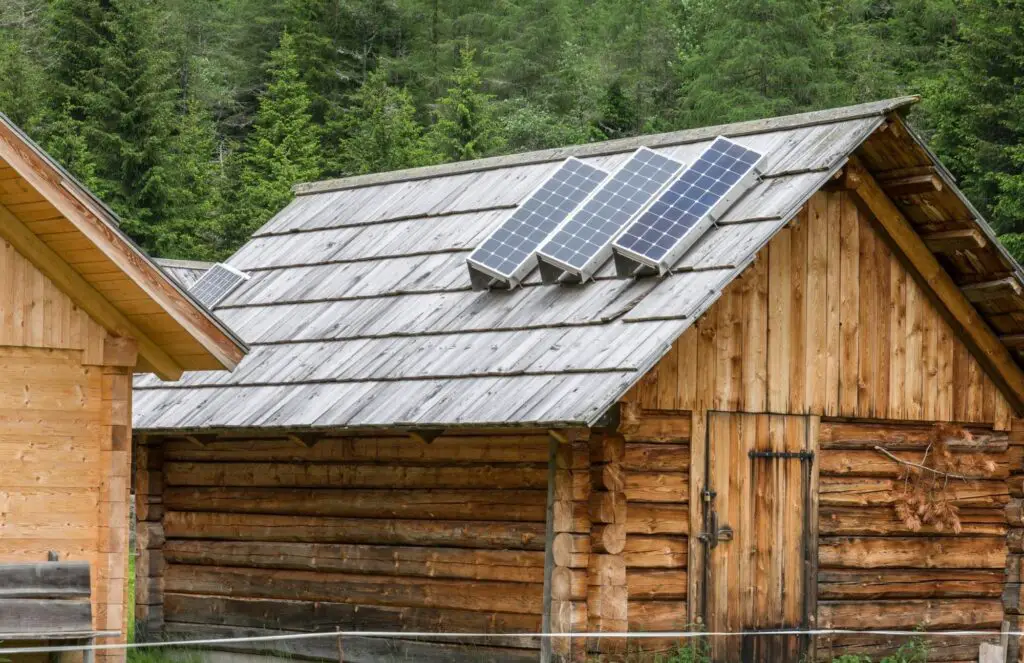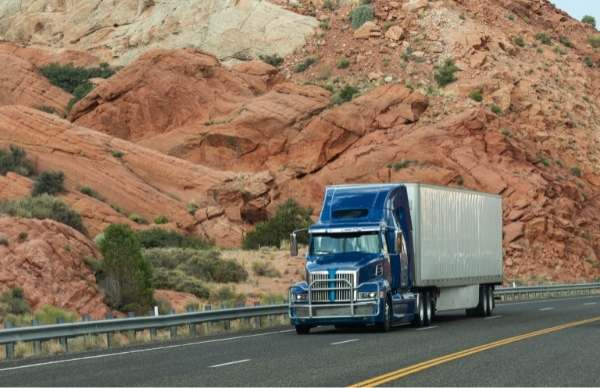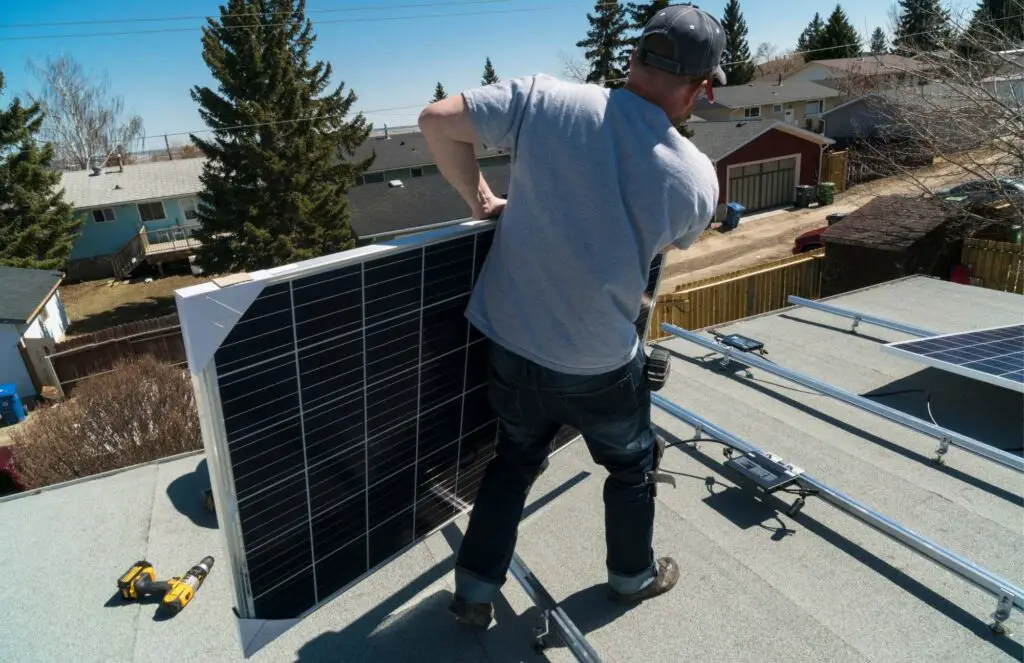
When you install solar panels on your home, off-grid cabin, or business, you are making a long-term investment. You want to make sure that you protect that investment as much as possible. At first thought you might think it’s best to cover them up during storms or when not in use, but is this the correct way to go?
Should You Cover Your Solar Panels During A Storm?
Most solar panels are designed to withstand stormy weather such as heavy snow, hail, and wind. In fact, most solar panel manufacturers offer a warranty that covers damage due to weather. Additionally, most home-owner insurance policies will also cover solar panels attached to your home.
If you think that it’s a good idea to cover solar panels during a storm…especially one that will have intense hail…then it makes sense to want to cover them up.
And if you wanted to go through the effort of covering them, then there shouldn’t be any harm in doing so. Of course, there are a few downsides that you should be aware of:
- They Won’t Be Producing Any Energy – Make sure you take this into account and determine if it will affect your energy needs.
- They Could Causing More Wind Damage – Solar panels are already large, flat “wing-like” pieces of glass and metal that are firmly fastened to their racking. Adding a cover, such as thick canvas or tarps, might further strain your roof and racking because it will give the wind more lift possibilities.
- They Could Allow Rain To Collect Or Pool – While rain isn’t a terrible thing for solar panels…it does help keep them clear of dust and leaves…you don’t want it pooling up around your panels since it could lead to leaks or flooding problems.
- Creates A Hazard For The Person Covering – If it’s not absolutely necessary to go up on your roof, why would you? Covering your panels means climbing up there twice, once to apply and once to remove. Having heavy canvas or tarps will also create all sorts of tripping hazards…and putting it up there likely wasn’t really helpful anyways.
Like I said above, wind isn’t likely to damage them and they’re designed to take snow and hail…so you’re better off just leaving them uncovered and waiting out the storm.
If it was severe enough then you will want to do a spot check and look for any damage, but the good news here is that you have two fail-safes…you’re product warranty and your home-owners insurance. If one won’t cover you, then the other likely will.

Should You Cover Your Solar Panels When Not In Use?
Typically, it is not recommended to cover your solar panels when not in use. However, homeowners may want to cover them if their home is going to be vacant for an extended period of time.
Of course, it all depends on how long you plan to not use your panels. If you’re only going to be away for a few days or a few weeks then there is no point in covering…they can just keep working and collecting power for you to use when you get home. Besides, you’ll likely still need security systems and for your appliances to remain running.
The exception to this is if you have a second home or cabin that you only spend a few weeks at per year. In this case you may consider unhooking your system all together. In this case then it may be a good idea to cover up your solar panels just in case some out-of-the ordinary event takes place.
Likewise, if you live in an area with a lot of dust, pollen, or bird droppings, then it might make sense to cover your solar panels when not in use in order to keep them clean. But in all honesty, it may just be easier (and more beneficial) to give your solar panels a good cleaning.
Most experts still say that this likely isn’t necessary. Even a cabin or second home will have home-owners insurance which will keep your panels covered.
Do Solar Panels Need To Be Covered In The Winter?
In general, solar panels don’t need to be covered in the winter since they are designed to withstand snow, rain, and wind. Solar panels work better in cold temperatures since heat interferes with the photo-voltaic effect.
Solar panels work best at temperatures of 77 degrees Fahrenheit (25 degrees Celsius), but will lose efficiency faster as it gets warmer and slower as it gets cooler. So if it’s a sunny day and the temperature is below freezing, your solar panels are still going to be working just fine.
However, if you live in an area that gets a lot of snow then you may want to consider covering your solar panels in the winter. Snow can block sunlight from reaching the solar panels and can also cause the solar panels to crack if it’s too heavy.
Snow can also create excess water pooling which could lead to roof leaks or mold/moss buildup, so make sure you keep snow from piling up on your solar panels.
If you do decide to cover your solar panels in the winter, then make sure that you remove the covers when the weather warms up. You don’t want to trap heat underneath the covers and damage your solar panels.

Should You Cover Your Solar Panels When Transporting Them?
Generally, it is a good idea to cover your solar panels when transporting or storing them. Covering your panels will protect them from getting scratched, nicked, or cracked while in transit. It will also help keep the glass clean and free of debris.
If you’re going to be moving your solar panels…maybe because you’re selling your home or just want to take them with you when you move…then it’s a good idea to cover them.
Any blanket, rug, or tarp you’d use to move other household appliances, electronic, or furniture should work fine.
What Should You Look For In A Solar Panel Cover?
If your solar panels are being transported, then you will want to cover them with a durable, non-abrasive blanket, rug, or other similar covering. If covering panels that are still on your roof, then you will want to make sure the cover is weatherproof and can withstand high winds.
It’s also important that the solar panel covers you use allow for proper ventilation so that they don’t overheat. This is especially important if you live in a hot climate or are covering panels that will be in direct sunlight.
There are a few things you should look for in solar panel covers:
- Ease of use: you don’t want something that’s going to be a pain to put on and take off. If it is, then you’re not likely to use it as often as you should.
- Durability: solar panel covers should be made of durable materials that can withstand the elements. You don’t want something that’s going to tear easily or fall apart in strong winds.
- Cost: solar panel covers can range in price, so you’ll want to find one that fits your budget. But be careful not to sacrifice quality for cost.
- Fit: solar panel covers should fit snugly around your solar panel. If it’s too loose then it could blow off in strong winds and if it’s too tight then it could crack the solar panel.
- Transparency: solar panel covers should be transparent so that they don’t block out the sun. After all, that’s what solar panels need to work!
- UV protection: solar panel covers should offer UV protection to help extend the life of your solar panels.

Should Solar Panels Be Covered During Installation?
During transport to the job site, solar panels should be covered to prevent damage or dust from collecting. These covers can be removed once they are ready to go up on the roof for install.
When solar panels are delivered from the installation company, they are generally either packed in cardboard boxes, or wrapped in heavy duty plastic. They are are stacked…usually on a pallet…and then banded together to keep them from moving. Of course, different companies have different methods so it’s always best to check with your solar provider if you have any concerns.
Will A Solar Panel Work When Covered?
Since solar panels need sunlight to work, it stands to reason that if they’re covered then they won’t work, at least not a peak efficiency. If your covering is somewhat see through or made of thinner material, then they may still produce a small amount of power.
The reason they can still produce power, even without direct sunlight is due to a process called the “photo-voltaic effect” which means that they generate electricity from light…not just direct sunlight.
What About A Clear Cover?
Solar panels will work if they are covered in a clear cover such as plastic or plexiglass. Solar panels use roughly 4% of UV light, 43% visible light, and 53% infrared light, and certain plastics can block some of that light which makes your panels less efficient.
Some people have opted to cover their solar panels with plexiglass or tempered glass…but this is a bit overkill for the vast majority of solar consumers.
Final Thoughts
Solar panels are a great way to produce renewable energy and save money on your electric bill, but it’s important to know when and how to cover them.
For the vast majority of people that own solar panels, it’s highly likely that you will NEVER need to cover your solar panels…really just during transport if you happen to move or store them for some reason.
I think I’ve covered everything you need to know about solar panel covers in this article, from what type of material to look for to whether or not they should be covered during installation. So whether you’re looking to protect your solar panels from a winter storm or just want to extend their lifespan, now you know what to do.

